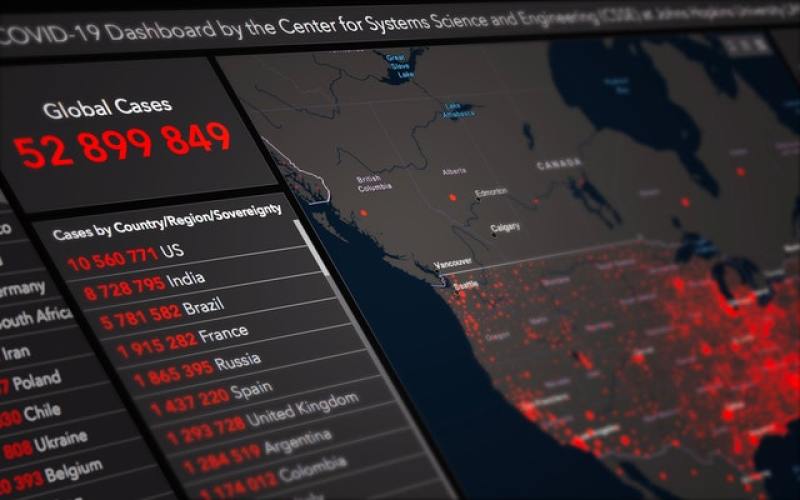
A report claims that the U.S. government may be spreading false data and statistics for national security and "law enforcement" purposes owing to laws approved months before the first COVID-19 outbreak.
Robert L. Kinney III, a contributor for LifeSite News, wrote an analysis on Dec. 31, 2021 based on a 2004 U.S. federal law regulating misleading information and hoaxes to evaluate if COVID-19 is a scam.
Kinney's premise is based on 118 STAT. 3765, 3766; 18 U.S. Code 1038, which allows "any lawfully authorized investigative, protective, or intelligence activity of a United States law enforcement agency," which evidently suggests that these agencies may participate in "conduct with intent to convey false or misleading information under circumstances where such information may reasonably be believed and where such information indicates that an activity has taken, is taking, or will take place."
In light of this, he said that government bureaus or departments may purposefully cause conflict among groups by fabricating an event or behavior of a person or group of individuals and by making sure the fabricated material is published in local or national media.
In contrast, "falsified pandemic," he said, "would be a much different type of activity."
He said that it may have been necessary to change U.S. federal laws to allow a hoax pandemic to be "a lawfully authorized... activity," as stated in the above U.S. federal law, before a U.S. law enforcement agency could "convey false or misleading information" about it.
As a further illustration of his argument, Kinney supplied a summary of his findings, stating that it may give a better understanding as to the relevance of the previously described legislative amendments.
In October 2019, the U.S. government legalized national security "exercises" for "emerging" threats.
The National Exercise Program (NEP) contains certain exercises that may be "classified," implying that there may be incidents occurring around the country that seem to be realistic but are really secret or undercover national security "exercises."
According to an NSPM-4 document, the FEMA Administrator, in conjunction with heads of departments and agencies, should conduct a national exercise program in accordance with applicable law.
As a result, the law change in October 2019 legalizing national security exercises for "emerging threats" appears to "lawfully authorize" arguably "protective...activity of a law enforcement agency of the United States" for specifically what the law calls "emerging threats" rather than other types of threats already specified.
Interestingly, the COVID-19 pandemic was reportedly described as an "emerging threat" or "emerging infectious disease threat" in official U.S. government publications.
"So, the October 2019 change suggests the possibility, or even the high probability, that the U.S. government was preparing for a national security exercise for such an "emerging threat," said Kinney. "Soon after the law change, the COVID-19 pandemic, a pandemic of an "emerging threat," reportedly began."
He also thought it intriguing that the federal law was passed at the same time as the supposed commencement of the COVID-19 outbreak.
"Sure enough, the federal government made what appear to be major changes or additions to the laws governing statistics, which could be seen as an attempt to "lawfully authorize" the use of falsified statistics for a "law enforcement" or national security purpose," said Kinney.
Because a fabricated pandemic would necessitate the dissemination of fabricated statistics, data, and information by the United States federal government, Kinney cited changes to the Centers for Disease Control and Prevention's "data policies," which resulted in the reported inflated numbers of COVID-19 cases, hospitalizations, and deaths.
Another major change to U.S. law in 2019 is the "Foundations for Evidence-Based Policymaking Act of 2018," which, according to Kinney, may be an attempt by federal authorities to legally shield themselves and "lawfully authorize" the use of potentially misleading information to achieve their objectives through the law.
Given these facts, Kinney argues that "it may or may not be coincidence that such a significant law change was made a year before the COVID-19 pandemic reportedly began."
































